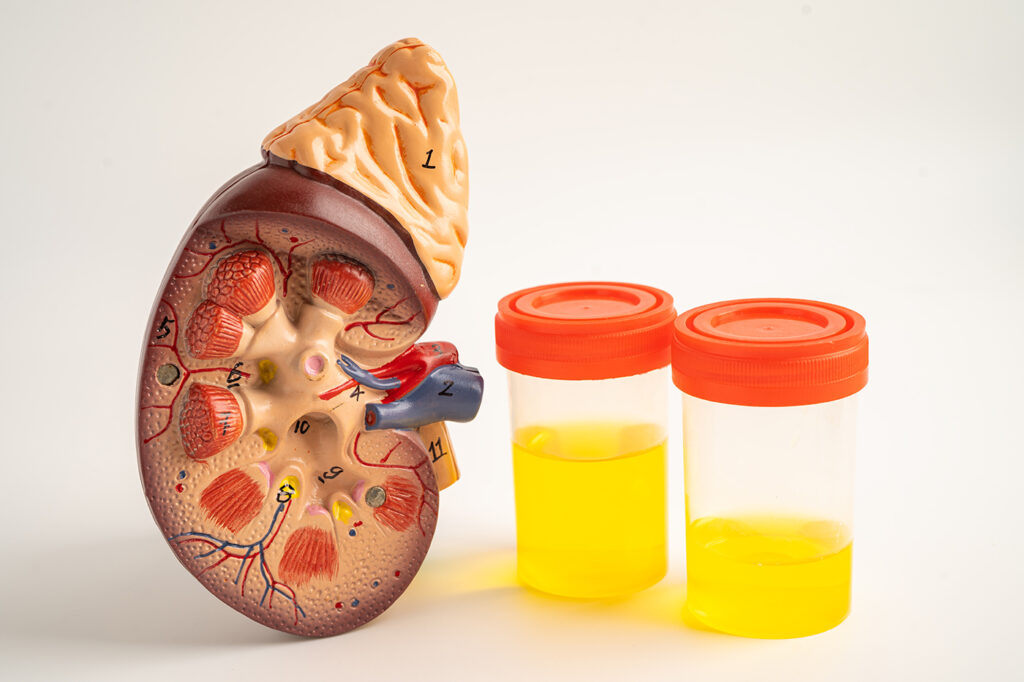
Understanding The Most Common Gynaecological Conditions: What Every Woman Should Know
Talking about gynaecological health isn’t always easy. Many women experience symptoms like irregular periods, painful cramps, or unusual discharge but hesitate to bring them up. Maybe it feels awkward, or maybe they assume it’s just “normal.” But here’s the thing: gynaecological health is a crucial part of overall well-being, and understanding common conditions can make all the difference.
So, let’s dive into some of the most common gynaecological conditions, what causes them, their symptoms, and when to see a doctor. No medical jargon, no unnecessary panic; just real talk about women’s health.

Dysmenorrhoea (Painful Periods)
For some women, periods come and go with barely a cramp, but for others, they feel like a miniature war happening inside the uterus. If you fall into the second category, you may have dysmenorrhoea, the medical term for painful periods.
Types of Dysmenorrhoea
There are two main types:
- Primary dysmenorrhea: Painful periods that start from the very first cycle and continue throughout life, usually due to hormonal imbalances.
- Secondary dysmenorrhea: Painful periods caused by an underlying medical condition, such as endometriosis or fibroids (more on those later).
Symptoms of Dysmenorrhoea
- Cramping in the lower abdomen
- Back and thigh pain
- Nausea or vomiting
- Fatigue and headaches
When to See a Doctor
If your period pain is severe enough to disrupt daily life, or if painkillers barely help, it’s time to get checked. Treatments range from lifestyle changes and pain management to investigating possible underlying causes.
Polycystic Ovary Syndrome (PCOS): The Silent Disruptor
Imagine your ovaries as a music playlist that’s supposed to play in perfect sequence. With PCOS, that playlist keeps skipping, making hormone levels unpredictable and leading to irregular periods, weight gain, and even infertility.
PCOS occurs when the ovaries produce excess androgens (male hormones), leading to cysts (fluid-filled sacs) forming around the eggs.
Symptoms of PCOS
- Irregular or missed periods
- Unexplained weight gain
- Excess facial or body hair (hirsutism)
- Acne and oily skin
- Thinning hair or hair loss
When to See a Doctor
PCOS is one of the leading causes of infertility, but early diagnosis can help manage symptoms through lifestyle changes, medication, and hormone therapy.
Endometriosis: The Pain that’s More Than Just Cramps
Now, this one is a big deal. Endometriosis is when tissue similar to the lining of the uterus grows outside the uterus, leading to severe pain, inflammation, and sometimes infertility.
Symptoms of Endometriosis
- Extreme pelvic pain (especially during periods)
- Pain during or after sex
- Heavy or irregular periods
- Bloating and digestive issues
When to See a Doctor
If your pain is so severe that it interferes with daily activities or if you’re struggling to conceive, seek medical help. Endometriosis can be managed with medication, hormone therapy, or surgery in severe cases.
Fibroids: The Uninvited Growths
Uterine fibroids are non-cancerous growths that develop in or around the uterus. Many women have fibroids without even knowing it, but for some, they cause significant discomfort.
Symptoms of Fibroids
- Heavy or prolonged periods
- Pelvic pain or pressure
- Frequent urination
- Pain during intercourse
When to See a Doctor
If you experience severe bleeding, pressure on your bladder, or struggle with fertility, it’s worth getting checked. Treatments vary from watchful waiting to medication, and in some cases, surgical removal or Uterine Fibroids Embolization (non-surgical removal).
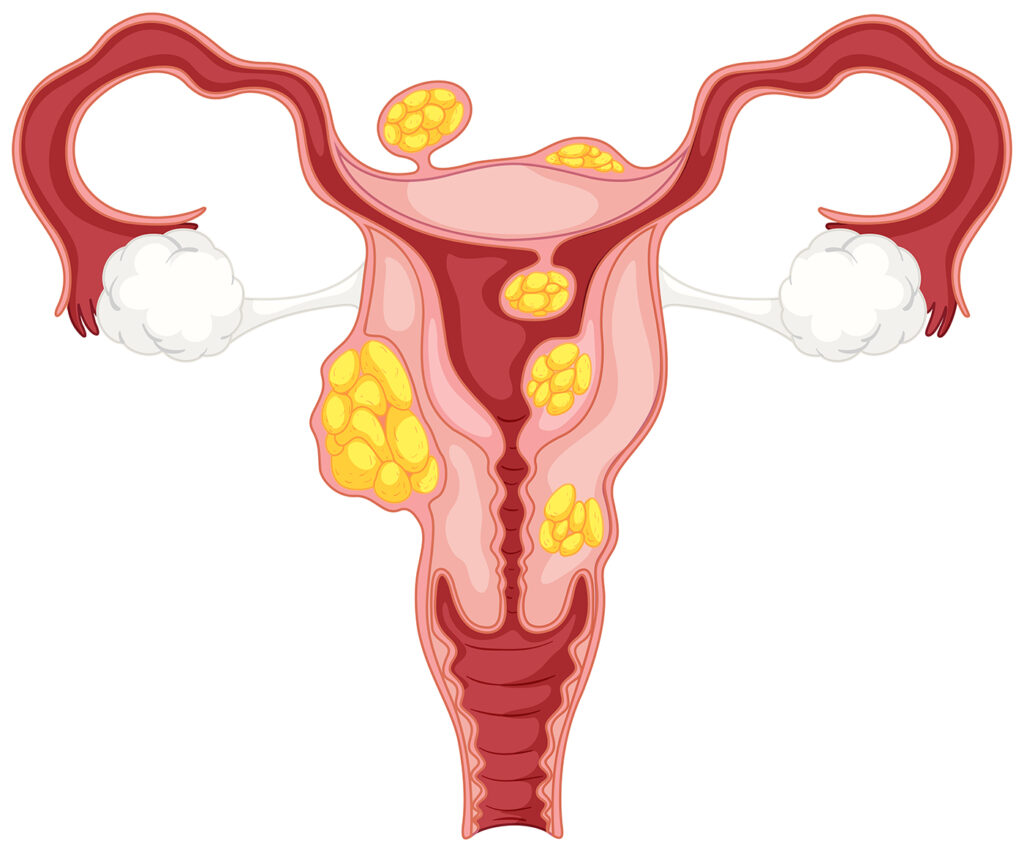
Urinary Tract Infections (UTIs): That Unbearable Burning Sensation
If you’ve ever had a UTI, you know how miserable it can be. UTIs occur when bacteria (usually E. coli) enter the urinary tract, leading to irritation and inflammation.
Symptoms of UTIs
- Burning sensation when urinating
- Frequent urge to pee, even when little comes out
- Cloudy or strong-smelling urine
- Pelvic pain
When to See a Doctor
Mild UTIs can sometimes clear up on their own with hydration, but persistent or worsening symptoms require antibiotics. Left untreated, UTIs can lead to kidney infections, which are far more serious.
Vaginitis: When Things Feel Off ‘Down There’
Ever had itching, burning, or unusual discharge and thought, “Something’s not right”? That could be vaginitis, an inflammation of the vagina caused by infections, hormonal changes, or irritants like scented soaps.
Common Types of Vaginitis
- Bacterial vaginosis (BV) – Caused by an imbalance of vaginal bacteria
- Yeast infections – Overgrowth of the fungus Candida
- Trichomoniasis – A sexually transmitted infection (STI)
Symptoms of Vaginitis
- Unusual discharge (thin, thick, white, gray, or greenish)
- Itching and irritation
- Burning during urination
When to See a Doctor
If symptoms persist or worsen, a simple test can determine the cause and guide the right treatment—whether it’s antibiotics, antifungals, or just a change in hygiene habits.
Ovarian Cysts: The Mystery Bubbles
Ovarian cysts are fluid-filled sacs that form on the ovaries, usually as part of the menstrual cycle. Most cysts are harmless and disappear on their own, but some can cause pain or complications.
Symptoms of Ovarian Cysts
- Bloating or swelling
- Pelvic pain
- Pain during intercourse
- Changes in menstrual cycle
When to See a Doctor
If a cyst grows large, twists, or ruptures, it can cause severe pain and requires immediate medical attention. In rare cases, surgery may be needed to remove problematic cysts.

Here’s the bottom line – gynaecological health matters. Many of these conditions are common, but that doesn’t mean you should ignore them. Early diagnosis and treatment can prevent complications, relieve discomfort, and even improve fertility. If something feels off, don’t hesitate to talk to a doctor. Your body is always sending signals; listen to them.

Sleep Therapy: The Secret to a Healthier Mind and Body
Have you ever woken up feeling more exhausted than when you went to bed? Or spent hours tossing and turning, mind racing, unable to switch off? Maybe you’ve accepted this as just part of life – stress, work, responsibilities and the never-ending to-do list. But what if I told you that sleep issues aren’t just an inconvenience? They could be a sign of a deeper problem that needs medical attention.
And that’s where Sleep Therapy comes in.
For many, the idea of consulting a specialist about sleep feels… unnecessary. “It’s just sleep, right? Everyone has bad nights.” But what if your sleep patterns are affecting your mental health, productivity, relationships, and overall well-being? What if there’s a solution; one that doesn’t just involve sleeping pills or endless cups of coffee to survive the day?
This is your wake-up call (pun intended) to take sleep seriously.

Why Sleep Problems Are More Than Just “Being Tired”
We live in a culture that glorifies hustle over rest. Late-night work sessions, endless scrolling through social media, and that one-more-episode mentality have turned good sleep into an afterthought. But here’s the reality:
Poor Sleep Can Affect Your Mental Health: There’s a strong connection between sleep and mental health. Conditions like anxiety, depression and even psychosis have been linked to chronic sleep deprivation. If you’ve ever felt irritable, unfocused or emotionally drained after a poor night’s sleep, imagine what months or years of disrupted sleep can do to your mental well-being.
Sleep Disorders Can Affect Your Heart, Weight, and Immunity: Bad sleep doesn’t just affect your mood; it impacts your entire body. Studies show that people who don’t get enough quality sleep are at a higher risk for:
- Heart disease and high blood pressure
- Obesity and metabolic disorders
- Weakened immune function, making you more prone to infections
Think about it: Your body does most of its repairing while you sleep. If you’re not getting good sleep, your body isn’t healing properly.
Lack of Sleep Affects Your Performance and Decision-Making: Ever felt like you were running on autopilot? That brain fog that makes it hard to focus or recall simple things? Chronic sleep issues can make you feel detached, slow, and unmotivated. And worse? You may not even realize that it’s happening.

Could You Have a Sleep Disorder? Here’s How to Know
Sleep problems aren’t just about having trouble falling asleep. They can manifest in different ways, such as:
Insomnia: The Never-Ending Battle with Sleep
If you’ve ever laid in bed for hours, staring at the ceiling or woken up multiple times during the night, you might have insomnia. It’s one of the most common sleep disorders and can be triggered by stress, anxiety, depression or even bad sleep habits.

Sleep Apnea: When Breathing Stops without You Knowing
Sleep apnea is a serious condition where your breathing repeatedly stops and starts while you sleep. It’s often linked to snoring, choking or gasping for air during sleep; but the real danger is that it puts extra strain on your heart and increases your risk of serious health issues.
Restless Legs Syndrome: When Your Body Won’t Let You Rest
Ever felt an uncontrollable urge to move your legs at night? Or a tingling sensation that makes it impossible to relax? This could be restless legs syndrome, a neurological condition that interferes with deep sleep.
Narcolepsy: When Sleep Takes Over at the Wrong Time
People with narcolepsy experience sudden sleep attacks, excessive daytime sleepiness, and even temporary muscle paralysis. If you find yourself nodding off during meetings, conversations, or while driving, it could be a serious sign that your sleep cycle is out of balance.
What Is Sleep Therapy and How Can It Help?
So, how do you fix sleep problems? Just go to bed earlier? Cut down on caffeine? Avoid screens? Sure, those help; but if your sleep issues run deeper, you need an expert approach.
What a Sleep Specialist Does
A sleep therapy specialist (often a psychiatrist trained in sleep disorders) focuses on understanding why you’re struggling with sleep and how it’s affecting your mental and physical health. This is not about just handing out sleeping pills; it’s about diagnosing the root cause and offering personalized treatment.

How Sleep Therapy Works
Comprehensive Sleep Assessment: Through sleep studies, medical history, and psychological evaluation, the specialist determines what’s really going on.
- Cognitive Behavioral Therapy for Insomnia (CBT-I): This is a highly effective, drug-free approach to retraining your brain for better sleep.
- Medication & Medical Interventions: If necessary, the specialist may recommend targeted treatments to manage specific disorders like sleep apnea or restless legs syndrome.
- Lifestyle & Behavioral Adjustments: Small, strategic changes in your routine can lead to massive improvements in sleep quality.
Think of sleep therapy as a tailored roadmap to better sleep – one that considers your unique challenges, lifestyle, and health.
Why You Shouldn’t Ignore Sleep Issues
Many people normalize bad sleep. “Oh, I’m just a light sleeper.” “I’ve always had trouble sleeping.” “It’s just stress.” But ignoring persistent sleep issues can have serious consequences.
Think about this:
- Would you ignore a constant cough or chest pain?
- Would you let blurry vision go unchecked for years?
- Would you avoid seeing a doctor if your heart was racing uncontrollably?
Sleep is just as crucial as diet and exercise. When you fix your sleep, everything else improves; your mood, focus, energy, even your relationships.

Interventional Radiology in Urology: The Future of Precision Treatment
Imagine waking up in the middle of the night with a sharp pain in your lower back. You brush it off as a bad sleeping position, but by morning, the pain has intensified, and you’re struggling to urinate. Panic sets in. A quick search online suggests kidney stones or an enlarged prostate – two conditions that can make even the toughest person wince. Now, traditionally, treatment might involve invasive surgery, long hospital stays, and weeks of discomfort. But what if I told you there’s a cutting-edge alternative that is precise, minimally invasive, and often allows you to walk out of the hospital the same day? Welcome to the world of Interventional Radiology (IR) in Urology – where medicine meets innovation, and recovery doesn’t have to mean bedrest for weeks.

What is Interventional Radiology?
Before we dive into how IR is transforming urological treatments, let’s break it down in the simplest way possible. Think of interventional radiology as the GPS of modern medicine. Instead of cutting open the body to find and fix a problem, interventional radiologists use real-time imaging, like X-rays, CT scans, and ultrasounds, to navigate tiny instruments through blood vessels or the urinary tract to directly target the issue. It’s like sending a drone into a burning building rather than knocking down walls to put out the fire.
Now, let’s talk about how this applies to urology, the branch of medicine that deals with the urinary system and male reproductive organs. Whether it’s kidney stones, an enlarged prostate, or even kidney cancer, interventional radiology is reshaping the way we treat these conditions with precision, speed, and minimal downtime.

Interventional Radiology Treatments for Urological Conditions
Prostate Artery Embolization (PAE) for Enlarged Prostate (BPH)
An enlarged prostate (Benign Prostatic Hyperplasia, or BPH) is something many men over 50 silently suffer through. Frequent bathroom trips, weak urine flow, and that annoying feeling of never quite emptying the bladder – it’s frustrating. Traditionally, surgery was the go-to solution, but not anymore.
Allow me to introduce you to Prostate Artery Embolization (PAE). Instead of surgically removing prostate tissue, this procedure shrinks the prostate by blocking blood supply to the overgrown areas. Through a small puncture in the groin or wrist, a catheter is guided to the prostate’s arteries, where tiny particles are injected to reduce blood flow. Over time, the prostate shrinks, relieving symptoms without cutting, stitches, or a long recovery period.
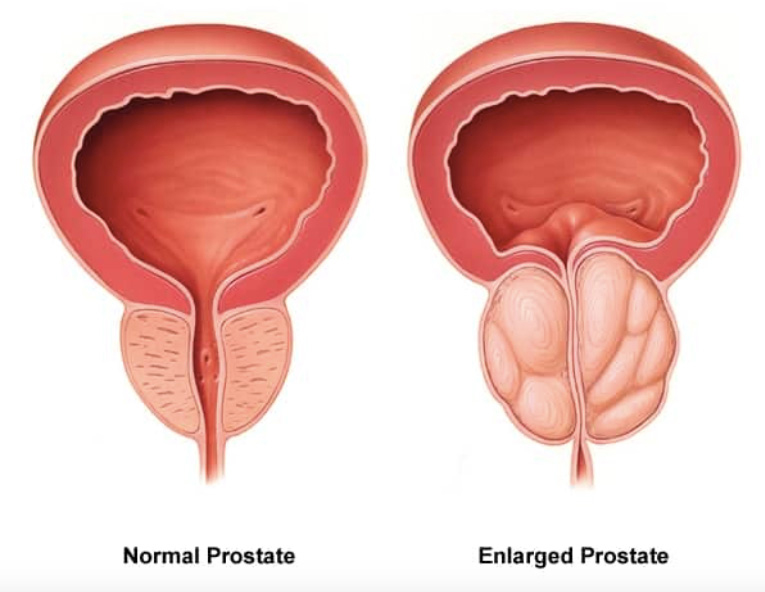
Percutaneous Nephrostomy: When Urine Needs an Escape Route
Sometimes, the urinary system gets blocked, whether due to kidney stones, infections, or tumors. When that happens, urine has nowhere to go, and pressure builds up in the kidney, leading to pain and potential damage. That’s where Percutaneous Nephrostomy (PCN) comes in.
Imagine your bathroom sink is clogged, and water keeps rising because it has nowhere to drain. Now, instead of tearing apart the pipes, you drill a small hole to let the water flow out temporarily. That’s essentially what PCN does. It involves placing a tiny tube into the kidney through the skin to allow urine to drain until the underlying problem is treated. This prevents infection and kidney damage, providing immediate relief.
Ureteral Stenting: Clearing the Path
For patients with blocked ureters (the tubes that carry urine from the kidneys to the bladder), interventional radiologists can place a ureteral stent, a small, flexible tube that keeps the passage open. The procedure is quick, usually requiring only local anesthesia, and patients can resume their daily activities almost immediately.
If you’ve ever used a straw to unclog a thick milkshake from a glass, you get the idea. This is essentially a medical version of that trick, keeping urine flowing freely without needing major surgery.
Laser Lithotripsy for Kidney Stones
Kidney stones are the tiny yet excruciatingly painful troublemakers of the urinary system. If you’ve ever had one, you know the pain can be as painful as childbirth. The good news? Laser Lithotripsy offers a minimally invasive way to break them down and remove them without traditional surgery.
Using a thin, flexible tube called a ureteroscope, an interventional radiologist navigates to the stone and uses a laser to break it into tiny fragments. The best part? No large incisions, no long recovery, and a high success rate. Patients typically go home the same day and pass the fragments naturally over time.
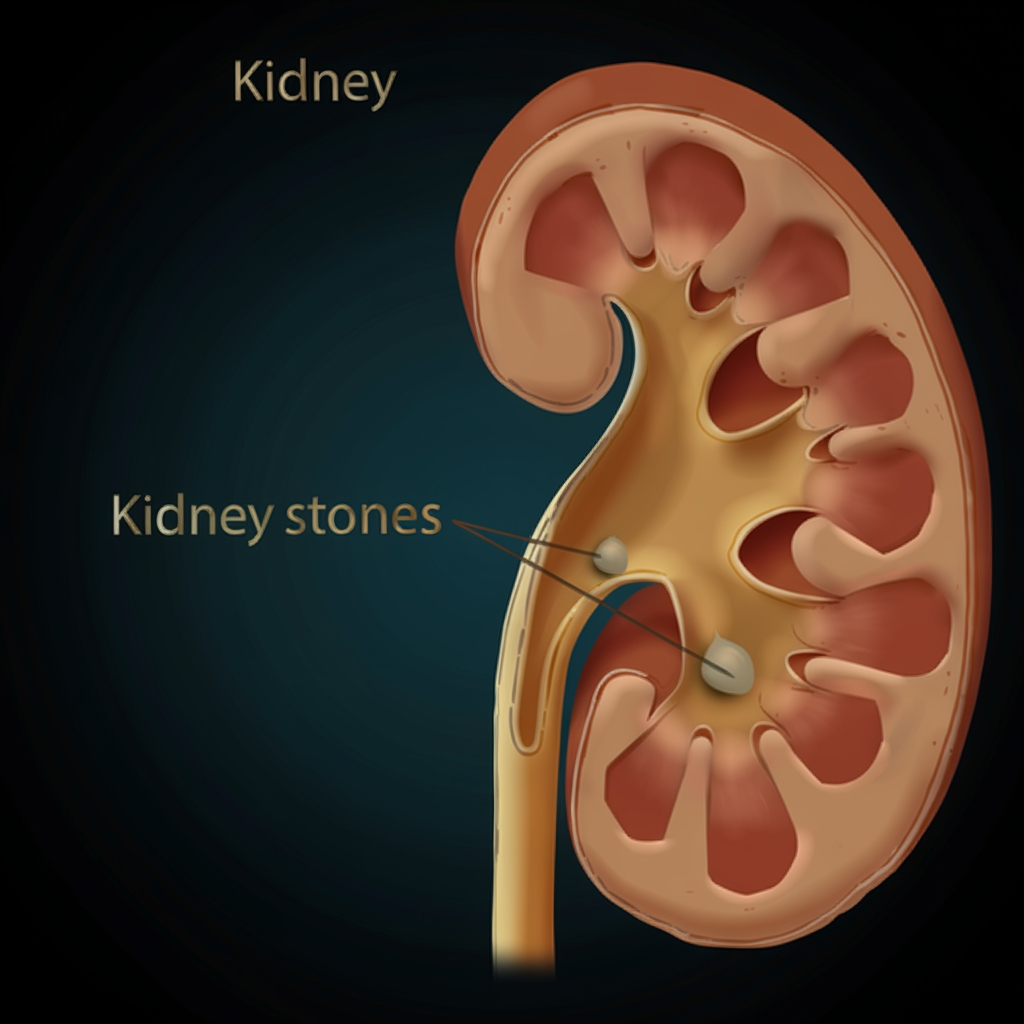
Tumor Ablation for Kidney Cancer
Kidney cancer treatment used to mean major surgery and long hospital stays, but interventional radiology has rewritten that narrative. Tumor Ablation uses heat (radiofrequency ablation) or extreme cold (cryoablation) to destroy cancer cells without cutting open the body.
Imagine freezing a wart with liquid nitrogen – only, in this case, it’s a tumor in the kidney. This targeted approach minimizes damage to surrounding healthy tissue and reduces recovery time compared to traditional surgery.
Why Choose Interventional Radiology for Urological Conditions?
At this point, you might be wondering: Why haven’t I heard about this before? Well, interventional radiology has been quietly revolutionizing medicine for years, but its applications in urology are now gaining more recognition. Here’s why it’s becoming the preferred choice:
- Minimally Invasive: No large incisions, no stitches, and less scarring.
- Faster Recovery: Many procedures are outpatient, meaning you go home the same day.
- Lower Risk: Reduced risk of complications like infections or excessive bleeding.
- Precision & Accuracy: Imaging technology ensures pinpoint accuracy for treatments.
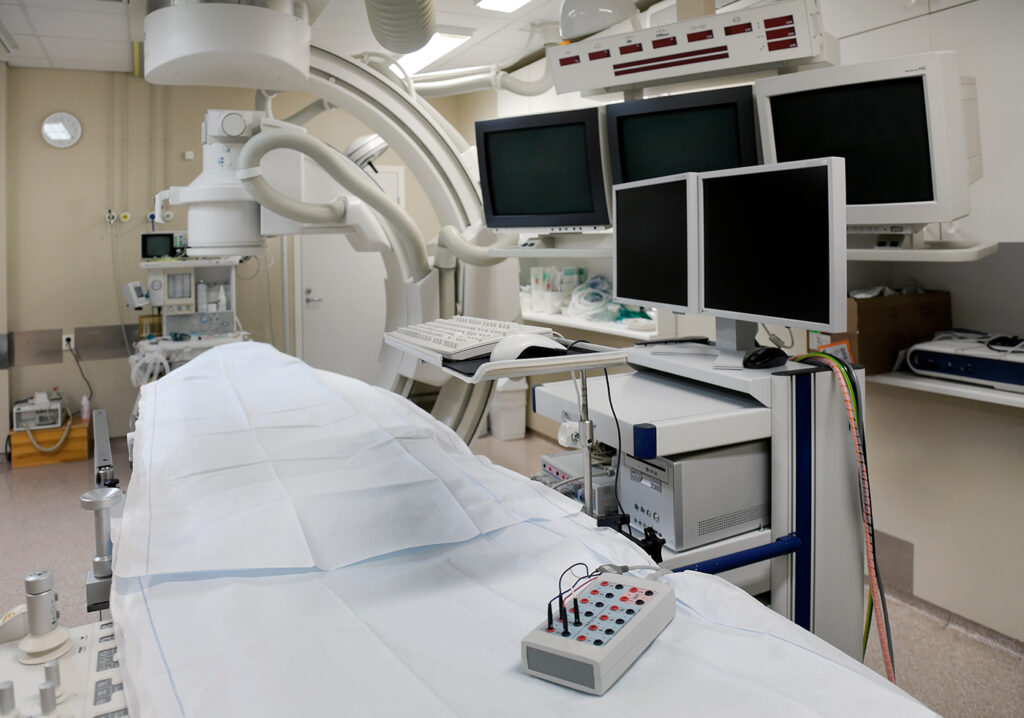
Interventional Radiology is reshaping how we treat kidney stones, prostate enlargement, urinary obstructions, and even kidney cancer. For patients, this means quicker recovery, less pain, and the ability to return to their normal lives faster than ever before. So, if you or someone you know is struggling with a urological condition, it’s time to ask the right question: Is there an interventional radiology option for me?
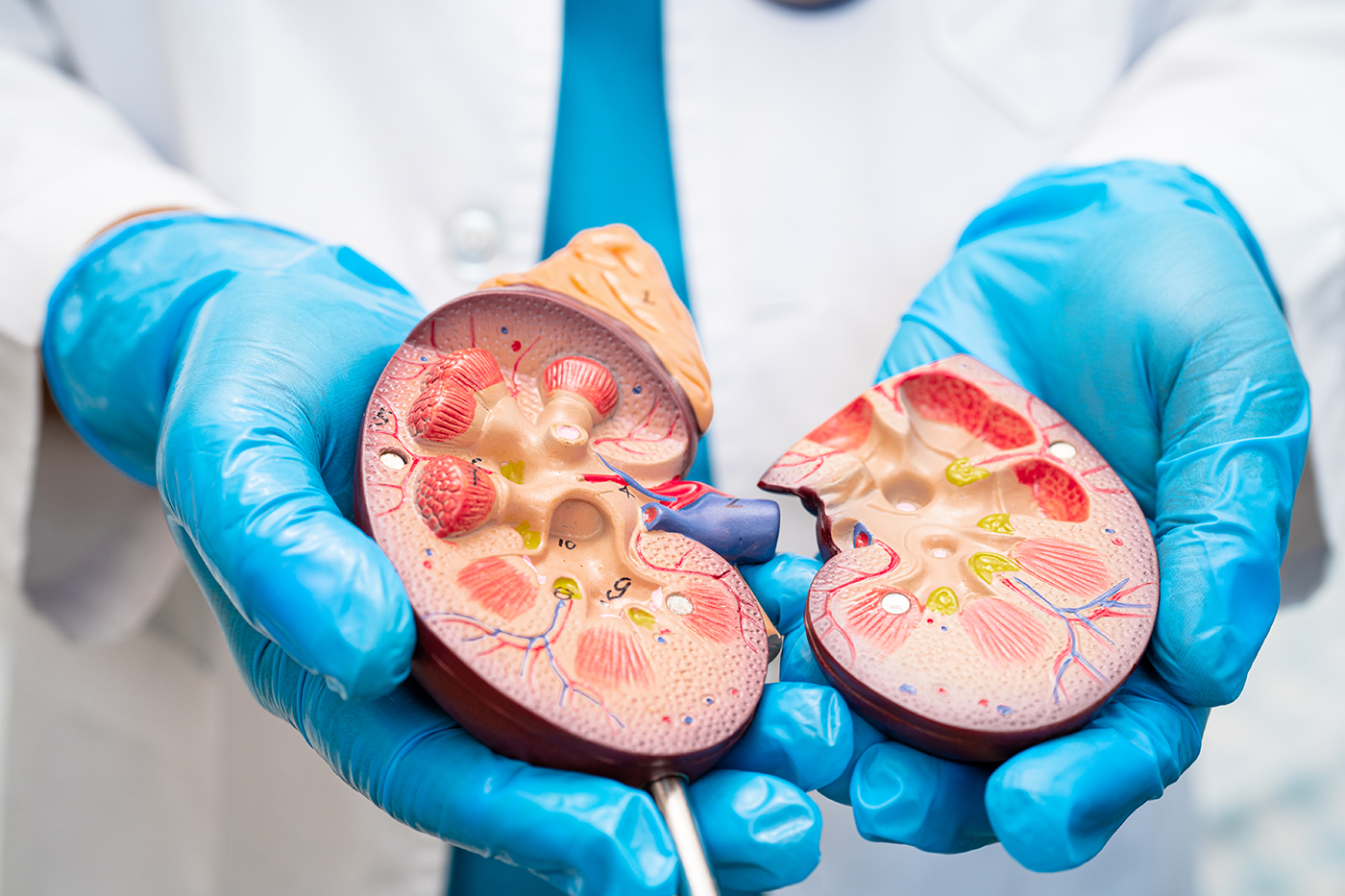
Understanding Kidney Health: Causes, Symptoms & Treatment Options
Your kidneys do a lot of behind-the-scenes work—filtering waste, balancing fluids, and keeping your blood pressure in check. They are like the body’s own internal purification and balancing machine, constantly filtering out the bad and keeping the good in check. But when something goes wrong, kidney problems can creep up quietly, often going unnoticed until they become serious. Some of the most common kidney issues include kidney stones, chronic kidney disease (CKD), urinary tract infections (UTIs), and hydronephrosis (swelling of the kidneys). Understanding what causes these problems and how to prevent them can go a long way in protecting your kidney health.
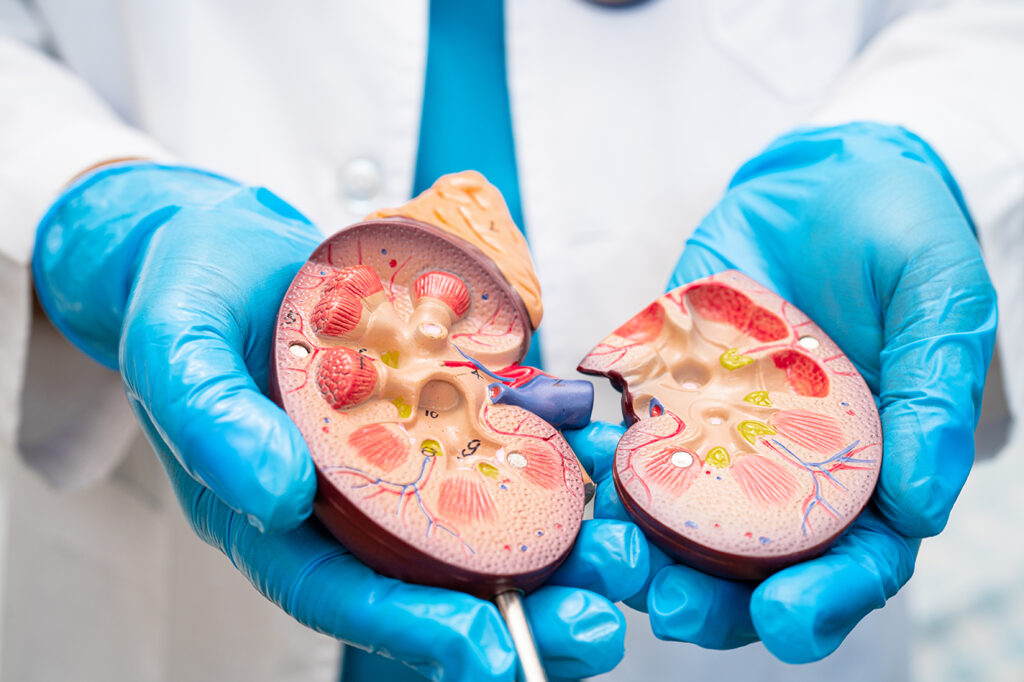
Kidney Stones: How They Form & Why They Happen
Kidney stones form when minerals in urine clump together, creating tiny rock-like deposits. Usually, your urine contains substances that prevent stones from forming, but when you’re dehydrated or have too many stone-forming minerals, they can build up. Some stones remain small and pass unnoticed, while larger ones can block the urinary tract, causing intense pain. Kidney stones are like clumps of sand in a pipe; when the flow is good, they wash away, but when it’s slow and thick, they build up and can cause a painful blockage.
What Causes Kidney Stones?
- Dehydration: Not drinking enough water increases the concentration of minerals in urine, making it easier for stones to form.
- High sodium diet: Too much salt raises calcium levels in urine, encouraging stone development.
- Oxalate-rich foods: Foods like spinach, nuts, and chocolate contain oxalate, which can bind with calcium to form stones.
- Genetics: A family history of kidney stones increases the risk.
- Medical conditions: Disorders like gout, hyperparathyroidism, and obesity contribute to stone formation.
Symptoms of Kidney Stones
- Sharp pain in the lower back, side, or lower abdomen
- Blood in the urine (pink, red, or brown discoloration)
- Frequent, urgent need to urinate
- Nausea and vomiting
- Burning sensation while urinating
Treatment for Kidney Stones
Small kidney stones often pass naturally with increased water intake. However, for larger stones that cause significant pain or block the urinary tract, medical intervention is required.
One of the most effective minimally invasive treatments is ureteroscopy with laser lithotripsy. Think of it like a plumber snaking a tiny camera and jackhammer down a drain to break up a clog. In this procedure, a thin tube (ureteroscope) is inserted through the urinary tract to locate the stone. A laser is then used to break it into smaller fragments, making it easier to pass naturally.
For even larger or more stubborn stones, percutaneous nephrolithotomy (PCNL) may be performed. This involves making a small incision in the back and using a specialized instrument to remove the stone directly. This method is particularly useful for stones that are too big to be broken down with a laser. This could be likened to a mechanic going directly into the engine to remove a large, stuck part.
Chronic Kidney Disease: The Silent Threat
Chronic kidney disease (CKD) is like a clogged filter in a water purifier; it gradually loses its ability to remove impurities, and while the water might still look okay at first, eventually, the buildup becomes too much, and the whole system fails. CKD occurs when the kidneys gradually lose their ability to filter waste and excess fluids. This process happens over time and, in many cases, does not present symptoms in the early stages. If left untreated, CKD can progress to kidney failure, requiring dialysis or a transplant.
What Causes Chronic Kidney Disease?
- Diabetes: High blood sugar damages kidney blood vessels, reducing their ability to filter waste.
- High blood pressure: Excessive pressure on the kidneys leads to scarring and gradual decline in function.
- Repeated kidney infections: Recurring infections can cause long-term kidney damage.
- Autoimmune diseases: Conditions like lupus trigger inflammation that harms kidney tissue.
- Long-term use of certain medications: Overuse of painkillers like ibuprofen and naproxen can weaken kidney function over time.
Symptoms of Chronic Kidney Disease
- Swelling in the legs, feet, or face due to fluid retention
- Persistent fatigue and weakness
- Changes in urine (foamy or darker in color)
- Shortness of breath due to fluid buildup in the lungs
- Difficulty concentrating or feeling mentally foggy
Treatment for Chronic Kidney Disease
There is no cure for CKD, but early management can slow its progression and prevent complications. Controlling blood pressure and blood sugar levels through medication and lifestyle changes is key. A kidney-friendly diet, low in sodium and processed foods, helps reduce strain on the kidneys.
In advanced cases, dialysis may be necessary. Dialysis is a process that removes waste and excess fluid from the blood when the kidneys can no longer do so effectively. There are two types: hemodialysis, where blood is filtered through a machine, and peritoneal dialysis, where a special fluid is introduced into the abdomen to absorb waste.
For patients with kidney failure, a kidney transplant offers the best long-term solution. This involves replacing the damaged kidney with a healthy one from a donor. While a transplant can restore kidney function, it requires lifelong medication to prevent organ rejection.
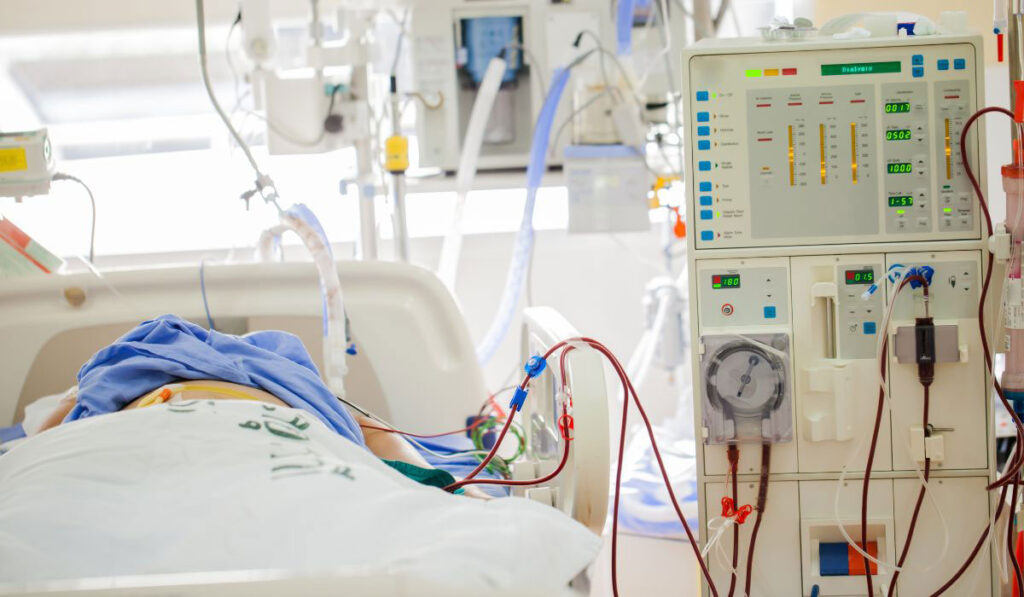
Urinary Tract Infections: More than Just a Bladder Issue
A urinary tract infection (UTI) occurs when bacteria enter the urinary system, causing inflammation. Though UTIs are more common in women, men can also develop them, especially if they have an enlarged prostate or kidney stones blocking urine flow.
What Causes UTIs?
- Bacteria (E. coli): The most common cause, often due to improper hygiene.
- Holding in urine too long: This allows bacteria to multiply.
- Dehydration: Less urine production means bacteria aren’t flushed out effectively.
- Blockages: Kidney stones or an enlarged prostate can make it harder to empty the bladder completely.
Symptoms of UTI
- Pain or burning sensation while urinating
- Frequent urge to urinate, even when little comes out
- Cloudy, dark, or foul-smelling urine
- Pain in the lower abdomen
- Fever and chills (if the infection spreads to the kidneys)
Treatment for UTIs
UTIs are typically treated with antibiotics to eliminate the infection. Drinking plenty of water helps flush bacteria from the urinary tract. In cases where UTIs become recurrent, further testing may be needed to check for underlying conditions like kidney stones or anatomical abnormalities.
Hydronephrosis: When the Kidneys Swell
Imagine a balloon that keeps filling up with water but can’t empty—that’s what happens in hydronephrosis. It occurs when urine can’t drain properly, leading to swelling in one or both kidneys. If left untreated, this buildup can cause kidney damage.
What Causes Hydrophronesis?
- Kidney stones: Stones blocking the urinary tract can cause urine to back up.
- Enlarged prostate: In men, an enlarged prostate can press against the urethra, making it harder to urinate.
- Urinary tract infections: Severe infections can lead to swelling that obstructs urine flow.
- Congenital defects: Some people are born with structural abnormalities in their urinary tract.
Symptoms of Hydrophronesis
- Pain or discomfort in the lower back or side
- Difficulty urinating or weak urine stream
- Nausea and vomiting
- Fever (if caused by an infection)
Treatment for Hydrophronesis
The treatment depends on the underlying cause. If kidney stones are blocking urine flow, laser lithotripsy or PCNL can be used to break and remove them. If an enlarged prostate is the issue, medications or procedures to reduce its size may be recommended. In cases of severe blockage, a ureteral stent (a small tube placed inside the ureter) or a nephrostomy tube (which drains urine directly from the kidney) may be necessary to restore proper urine flow.

Many kidney conditions progress silently until they cause severe problems. Thanks to advanced interventional radiology techniques, many kidney-related conditions can now be treated with minimally invasive procedures, reducing recovery time and improving patient outcomes. If you experience persistent urinary symptoms, consult a urologist to ensure your kidneys stay healthy.
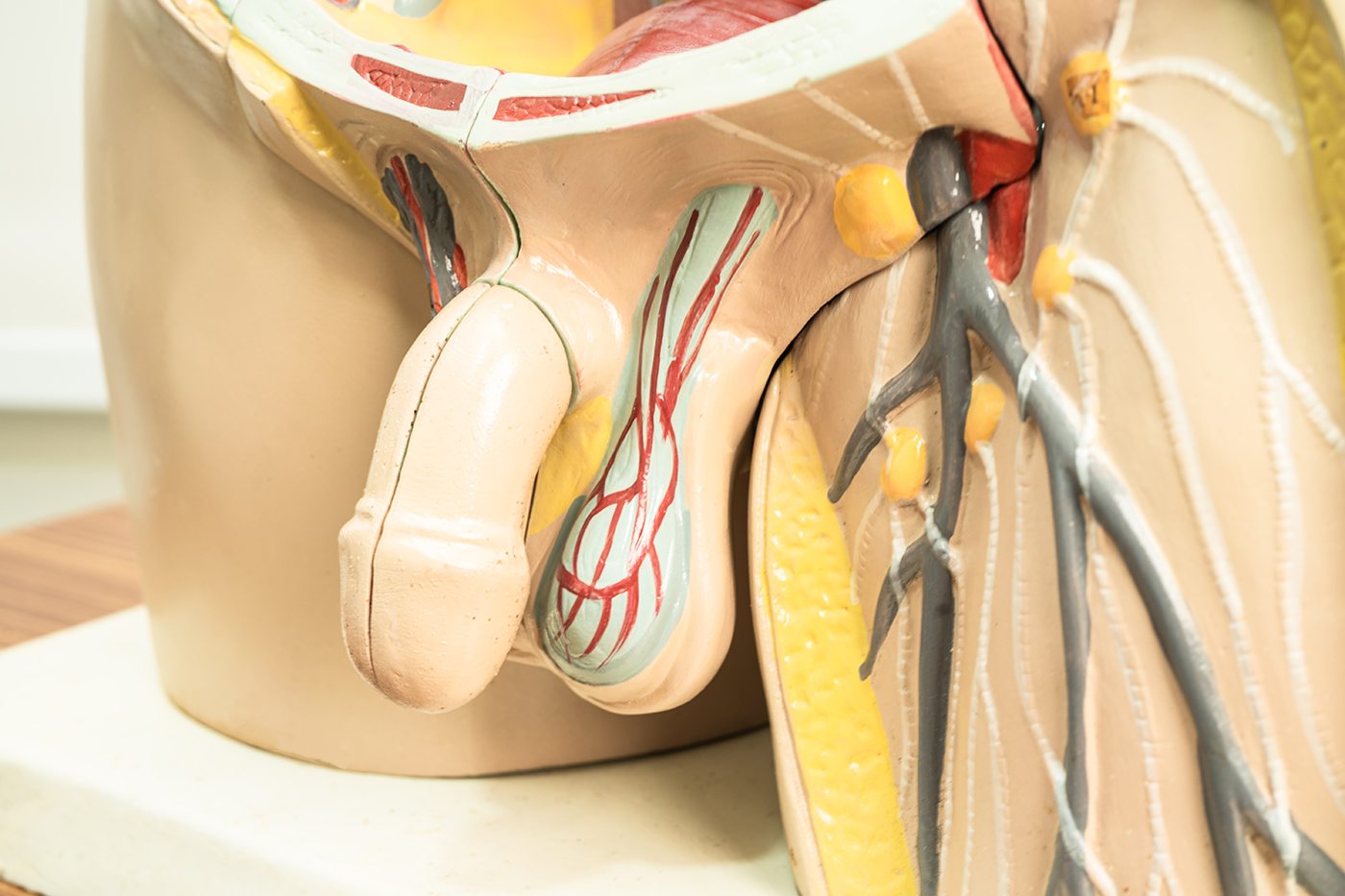
Male Sexual & Reproductive Health: Causes, Symptoms & Treatment
Talking about men’s sexual and reproductive health isn’t always easy, but it’s important. Issues like erectile dysfunction, low testosterone, and infertility don’t just affect the body; they can impact confidence, relationships, and overall well-being. A lot of guys think these problems are just part of getting older, but that’s not always true. Many of these issues have treatable causes, and the sooner you address them, the better. So, let’s break it down—what’s causing these problems, what signs to watch for, and what can be done to fix them.
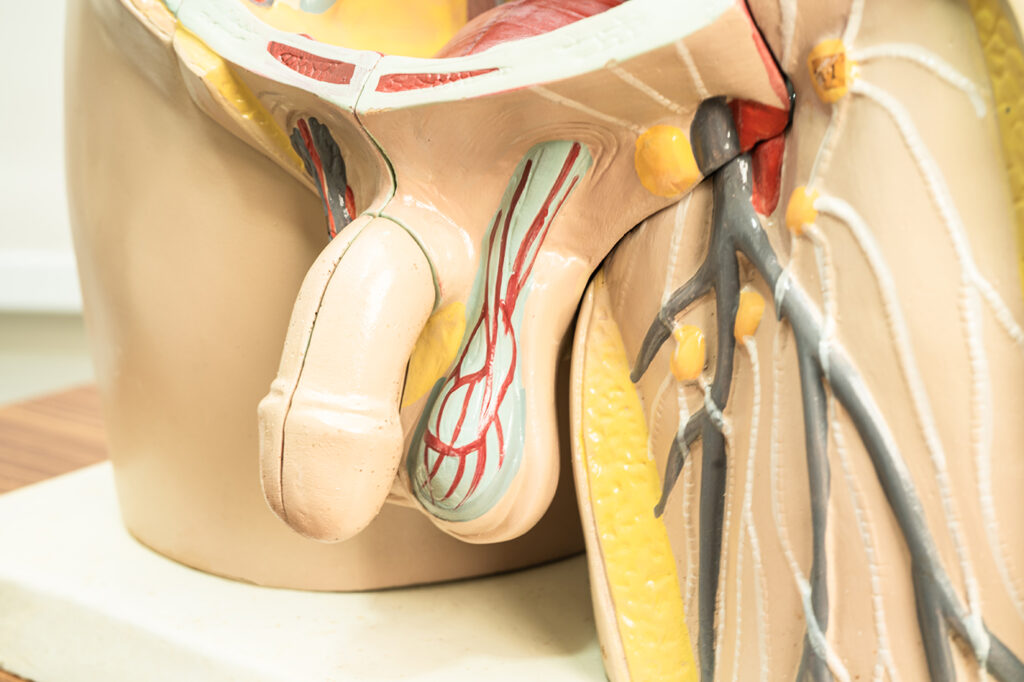
Erectile Dysfunction (ED): When Things Don’t Work Like They Used To
Erectile dysfunction (ED) is when you struggle to get or keep an erection firm enough for sex. It can happen once in a while or be an ongoing issue that affects confidence and relationships.
What Causes ED?
- Poor blood flow: Conditions like high blood pressure and diabetes can make it harder for blood to reach the penis.
- Nerve problems: Surgery, spinal injuries, or diabetes can affect nerve signals.
- Hormonal issues: Low testosterone levels can mess with performance.
- Stress & mental health: Anxiety, depression, or even performance pressure can play a role.
Symptoms of Erectile Dysfunction
- Trouble getting or keeping an erection
- Lower sex drive
- Erections that aren’t as firm or don’t last long
How is ED Treated?
The most common treatment approach involves medications that enhance blood flow to the penis, making it easier to achieve and maintain an erection. These medications work by relaxing blood vessels and improving circulation. However, they are not suitable for everyone, particularly individuals with certain heart conditions.
For men with nerve-related ED, treatments such as penile injections or vacuum erection devices may be recommended. In cases where other treatments fail, a penile implant—a surgically inserted device—offers a permanent solution by providing a mechanically induced erection. Beyond medical treatments, addressing lifestyle factors such as exercise, a balanced diet, and stress management can also improve erectile function.
Low Testosterone: When Energy & Libido Take a Hit
Testosterone is the hormone that fuels muscle growth, sex drive, and energy levels. When levels drop, it can affect your mood, weight, and bedroom performance.
Why Does Testosterone Drop?
- Aging: Levels naturally decline after 30.
- Chronic illnesses: Diabetes, obesity, and kidney disease can lower production.
- Medications: Long-term steroid or opioid use can cause drops.
Signs of Low Testosterone
- Feeling constantly tired
- Losing muscle and gaining belly fat
- Low sex drive and possible ED
- Mood swings or feeling down
How to Fix Low Testosterone
Testosterone replacement therapy (TRT) is the most effective medical approach to restoring hormone levels. This therapy can be administered through gels, patches, or injections, depending on individual needs. However, TRT should be carefully monitored by a doctor, as excessive testosterone levels can lead to complications such as blood clotting and heart issues.
For those seeking a more natural approach, lifestyle changes such as regular strength training, maintaining a healthy weight, and getting adequate sleep can help support the body’s natural testosterone production. Reducing stress and improving diet—particularly by consuming foods rich in zinc and vitamin D—can also contribute to healthier testosterone levels.
Male Infertility: When Having Kids Becomes a Challenge
Male infertility is often due to low sperm count, poor sperm quality, or issues with sperm delivery. It contributes to nearly 40-50% of fertility struggles among couples.
What Causes Male Infertility?
- Hormonal imbalances: Low testosterone or thyroid disorders can impact sperm production.
- Varicocele: Enlarged veins in the scrotum can increase testicular temperature and reduce sperm quality.
- Infections: STIs like chlamydia, gonorrhea, or prostate infections can damage sperm health.
- Lifestyle factors: Smoking, excessive alcohol, obesity, and even prolonged heat exposure (like frequent hot tub use) can affect sperm production.
Signs of Male Infertility
- Difficulty conceiving after a year of trying
- Reduced facial or body hair (a sign of hormonal imbalance)
- Swelling or discomfort in the testicles
Treatment for Male Infertility
Treatment depends on the underlying cause. If hormonal imbalances are the problem, hormone therapy can help regulate sperm production. In cases where varicocele (enlarged veins in the scrotum) is causing infertility, a minor surgical procedure can be performed to correct the condition and improve sperm quality.
For men with infections affecting sperm health, antibiotics may be prescribed to clear up any underlying infections. In more severe cases, assisted reproductive techniques such as in-vitro fertilization (IVF) or intracytoplasmic sperm injection (ICSI) can help couples conceive by directly introducing healthy sperm into the egg. Additionally, lifestyle changes, such as quitting smoking, reducing alcohol intake, and maintaining a healthy weight, can significantly improve sperm health.
Prostate Enlargement (BPH): A Common Aging Issue
As men age, the prostate naturally grows larger, which can press against the bladder and urethra, making urination difficult. This is called benign prostatic hyperplasia (BPH), and it’s extremely common in men over 50.
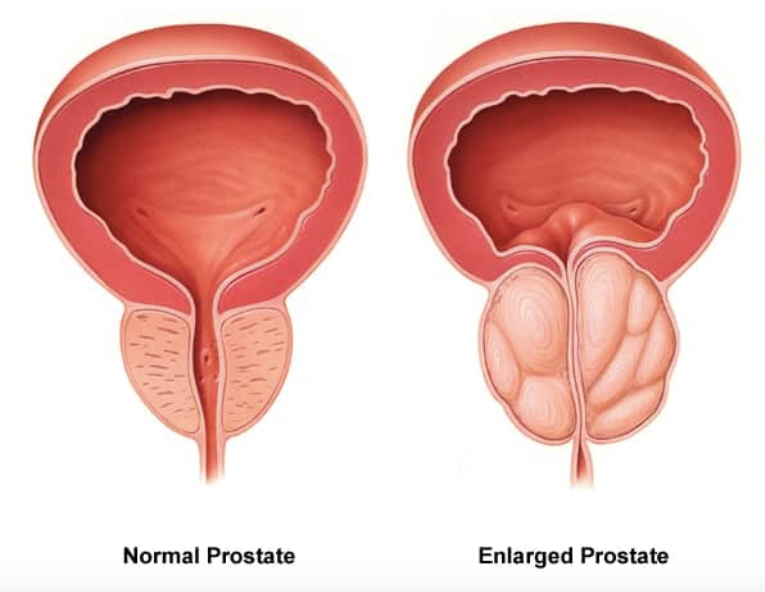
Why Does BPH Happen?
- Aging: Most men experience some level of prostate enlargement as they get older.
- Hormonal Changes: An imbalance in testosterone and estrogen levels may contribute to prostate growth.
Symptoms of BPH
- Weak or interrupted urine stream
- Frequent urination, especially at night
- Difficulty starting urination or feeling like the bladder isn’t empty
Treatment for BPH
Mild cases of BPH may be managed with lifestyle changes such as reducing caffeine and alcohol intake, staying hydrated, and practicing bladder training exercises. When symptoms are more severe, medications that relax the prostate muscles or shrink the gland may be prescribed to improve urine flow.
For those who do not respond to medication, minimally invasive procedures offer effective solutions. One advanced treatment option is Prostate Artery Embolization (PAE), which works by reducing blood supply to the prostate, causing it to shrink and relieve symptoms. Other procedures, such as transurethral resection of the prostate (TURP), involve surgically removing excess prostate tissue to improve urine flow. In extreme cases, complete surgical removal of the prostate may be necessary.

A lot of men tend to brush off issues like ED, low testosterone, or fertility struggles, but these things can take a real toll on confidence and relationships. However, most of these problems have solid solutions. Just having an open conversation with a urologist; that can make a huge difference.
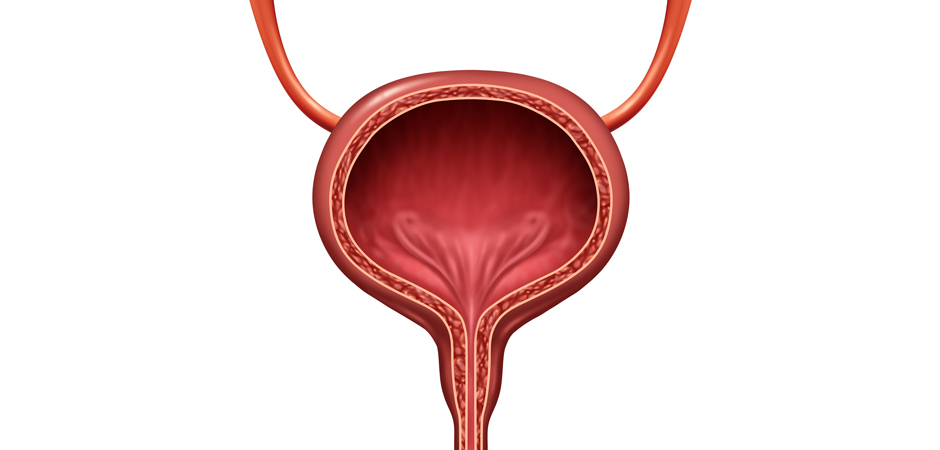
Bladder & Urinary Health: Causes, Symptoms & Treatment
A water balloon that needs to hold and release its contents on demand, captures the essence of the bladder’s function. The bladder plays an important role in storing and expelling urine, but sometimes, things don’t go as planned. Bladder issues like leaks, infections, an overactive bladder, or chronic irritation can make everyday life frustrating. Understanding what causes these problems, their symptoms, and how to manage them can make a huge difference.

Urinary Incontinence: Loss of Bladder Control
A leaky faucet, dripping despite your best efforts to tighten it, mirrors the frustrating reality of urinary incontinence — urine leaks out when you least expect it. This happens when bladder muscles weaken, nerves misfire, or there’s too much pressure on the bladder. It can affect both men and women, especially as they age.
Causes of Urinary Incontinence
- Weak pelvic muscles: Often due to pregnancy, childbirth, or aging
- Nerve damage: Conditions like diabetes, stroke, or multiple sclerosis can disrupt bladder signals
- Prostate issues (in men): An enlarged prostate or prostate surgery can lead to leakage
- Obesity: Excess weight increases pressure on the bladder
Symptoms of Urinary Incontinence
- Sudden, strong urges to urinate
- Leaking urine during coughing, sneezing, or physical activity
- Frequent nighttime urination
- Inability to fully empty the bladder
Treatment for Urinary Incontinence
Just as a gardener might use different tools to mend a leaky irrigation system, treatments for incontinence vary depending on the problem. Pelvic floor exercises (Kegels) strengthen bladder muscles, improving control – like reinforcing the pipes. In cases where muscle weakness is severe, bladder training and medications can help reduce urgency and leakage – like adjusting water pressure and sealing small cracks. Advanced treatments like Botox injections in the bladder or nerve stimulation therapy may also be recommended for long-term management – akin to installing a new, automated control system.
Bladder Infections (Cystitis): Inflammation of the Bladder
Cystitis occurs when bacteria enter the bladder, leading to infection. It is more common in women due to the shorter urethra but can also affect men, particularly those with prostate problems.
Causes Bladder Infections
- Bacteria from the digestive tract (E. coli): The most common cause.
- Incomplete bladder emptying: Can lead to bacterial buildup.
- Frequent use of catheters: Increases infection risk.
- Hormonal changes: Reduced estrogen levels (in menopause) can alter bladder function.
Symptoms of Bladder Infections
- Burning sensation while urinating
- Frequent, urgent need to urinate
- Cloudy or strong-smelling urine
- Pain in the lower abdomen
Treatment for Bladder Infections
Most bladder infections clear up with antibiotics, but drinking plenty of water and urinating often helps flush bacteria out faster. If infections keep coming back, it might be worth checking for underlying issues like bladder stones or other structural problems.
Overactive Bladder (OAB): When Urgency Takes Over
A smoke detector with a faulty sensor, triggering alarms at the slightest whiff of smoke, reflects the experience of an overactive bladder. An overactive bladder causes a frequent, urgent need to urinate, even when the bladder isn’t full.
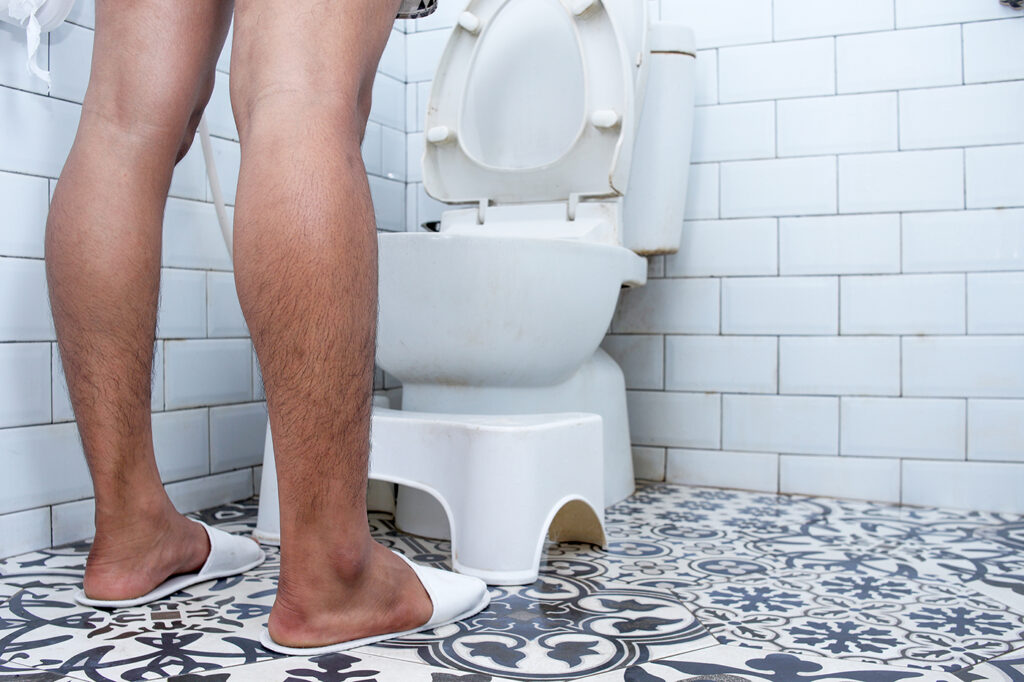
Causes of Overactive Bladder
- Nerve dysfunction: Disrupts bladder control.
- Bladder muscle overactivity: Causes sudden contractions.
- Aging: Weakens bladder control.
- Diabetes & obesity: Increase bladder pressure.
Symptoms of Overactive Bladder
- Frequent urination (more than 8 times a day)
- Strong, sudden urges to urinate
- Waking up multiple times at night to urinate
Treatment for Overactive Bladder
Cutting back on caffeine and training your bladder to hold urine longer can help. Medications that relax bladder muscles might be needed, and in severe cases, Botox injections (an implant that regulates bladder signals) or nerve stimulation can calm things down.

Bladder problems can be annoying, but they’re often manageable with the right approach. Early intervention, lifestyle changes, and medical advancements such as minimally invasive procedures offer effective solutions to bladder and urinary health. If you experience persistent bladder issues, consulting a urologist can help prevent complications and improve long-term health.

What Is Bariatric Surgery? A Guide To Weight Loss Surgery
Bariatric surgery, also called weight loss surgery, is a procedure that helps people lose weight by changing their stomach and how their digestive system works. It’s usually recommended for people who are very overweight and haven’t been able to lose weight through diet and exercise. While it’s not a quick fix, it can help reduce health risks related to obesity, like heart disease and diabetes.

In this guide, we’ll explain what bariatric surgery is, the different types of surgeries available, and who can get this type of surgery.
What is Bariatric Surgery?
Bariatric surgery makes the stomach smaller, so you can’t eat as much, or it changes how your body digests food. It is often suggested for people who are severely overweight and have health problems due to their weight.
Types of Bariatric Surgery
There are a few different types of bariatric surgery:
- Gastric Bypass: This surgery makes your stomach much smaller and connects it to the small intestine, so food bypasses most of your stomach and digestive system. This way, you eat less and absorb fewer nutrients.
- Sleeve Gastrectomy: About 80% of your stomach is removed, leaving a small, sleeve-shaped stomach. This smaller stomach helps you feel full quicker, and it also reduces hunger hormones.
- Adjustable Gastric Banding: A band is placed around the top part of your stomach to create a small pouch. The band can be tightened or loosened to control how much food the stomach can hold.
- Biliopancreatic Diversion with Duodenal Switch (BPD/DS): This surgery removes part of the stomach and bypasses a large section of the small intestine. It reduces both the amount of food you can eat and the nutrients you absorb.
These surgeries help you lose weight by limiting food intake or reducing nutrient absorption. Bariatric surgery is usually only recommended for people who have tried other weight loss methods and have serious health problems due to their weight.
Who Can Get Bariatric Surgery?

Doctors look at several factors to decide if someone qualifies for this surgery:
1. Body Mass Index (BMI)
BMI is a number that helps doctors understand if a person’s weight is in a healthy range for their height.
Bariatric surgery is often considered for people who have:
- A BMI of 40 or higher.
- A BMI between 35 and 39.9, along with serious health problems like diabetes, high blood pressure, or sleep apnea.
2. Health Problems Linked to Weight
If you have health issues caused by being overweight, like heart disease or type 2 diabetes, you may be eligible for bariatric surgery even if your BMI isn’t very high. These conditions can be dangerous, and surgery might help manage or improve them.
3. Difficulty Losing Weight
If you’ve tried dieting and exercising but haven’t been able to lose weight or keep it off, bariatric surgery may be an option. Many people lose weight temporarily but regain it, and surgery can help provide a more long-term solution.

Bariatric surgery can be a helpful option for people who have struggled with weight loss and health problems related to obesity. It changes how the stomach works, helping you eat less and lose weight over time. However, it’s not a quick fix—you’ll need to commit to a healthier lifestyle for the long term. If you think bariatric surgery might be right for you, talk to a doctor here to see if it’s a good option based on your health and weight loss journey.

What Happens to Your Body During a Stroke?
A stroke is a serious medical emergency that happens when blood flow to a part of the brain is suddenly blocked. This disruption causes the brain to lose function quickly, and without fast treatment, it can lead to severe damage or even death. Understanding what happens inside your body during a stroke can show why it’s so important to get help immediately. Here’s a step-by-step look at what goes on when a stroke occurs.

Step 1: Blood Flow to the Brain Is Interrupted
A stroke begins when the flow of blood to a part of the brain is cut off. This can happen in two main ways:
- Ischemic Stroke: The most common type, happening about 85% of the time. It occurs when a blood clot blocks or narrows an artery leading to the brain. This can be likened to dirt in a pipe that prevents water from reaching its destination.
- Hemorrhagic Stroke: Less common but more severe, this type occurs when a blood vessel in the brain bursts, causing bleeding. It’s similar to a dam breaking and flooding everything downstream; the sudden surge damages anything in it parts.
Step 2: Lack of Oxygen and Nutrients
When blood can’t reach the brain, the affected area doesn’t get the oxygen and nutrients it needs. Brain cells start to die within minutes because they are very sensitive and can’t survive without oxygen.
Step 3: Brain Cell Damage
As brain cells die, the brain loses control over the functions managed by the damaged area. For example, if the stroke affects the parts of the brain that handle movement, speech, or vision, the person may have trouble moving, talking, or seeing. Picture a keyboard that has lost some of its keys; each key means you can’t type certain letters anymore, disrupting communication.
Step 4: Inflammation in the Brain
The body tries to help by sending an immune response to the injured brain area, causing inflammation (swelling). While this is a normal healing process, too much swelling can make the damage worse by putting extra pressure on the brain.
Step 5: Loss of Body Functions
The side effects of a stroke depend on which part of the brain is affected:
- Left Side of the Brain: May cause paralysis on the right side of the body and problems with speech and language.
- Right Side of the Brain: May lead to paralysis on the left side and issues with spatial awareness or seeing things on one side.
Step 6: Body’s Emergency Response
The body tries to widen other blood vessels and raise blood pressure to keep the brain supplied with blood. However, this is usually not enough to fix the problem, which is why medical help is crucial.
Step 7: Symptoms Show Up Quickly
Strokes often cause sudden and noticeable symptoms, including:
- Numbness or weakness, especially on one side of the body.
- Trouble speaking or understanding others.
- Vision problems in one or both eyes.
- Difficulty walking, dizziness, or loss of balance.
- A sudden, severe headache with no clear cause.
These signs appear fast and without warning, like an emergency alert on your phone that catches you off guard but demands immediate action.

Step 8: Permanent Damage if Not Treated
If the stroke isn’t treated quickly, the lack of oxygen can cause lasting brain damage, leading to serious long-term problems or even death. Fast treatment, like medications to break up clots or surgery to stop bleeding, can greatly improve recovery and reduce damage.

A stroke is a race against time. Knowing what happens inside your body during a stroke shows just how urgent it is to get medical help fast. The sooner a stroke is treated, the better the chances of reducing damage and protecting your brain’s important functions. Recognizing the symptoms and acting quickly can make all the difference—every second counts. Are experiencing early signs of stroke? Talk to us here!

Understanding Stroke: Causes, Risk Factors and Symptoms
Strokes are sudden, serious, and can change lives in an instant. Often called a “brain attack,” a stroke occurs when the blood supply to part of the brain is interrupted or reduced, preventing brain tissue from getting the oxygen and nutrients it needs. Within minutes, brain cells begin to die, making every second crucial. However, strokes often don’t come out of nowhere—they quietly build over time, fueled by a mix of lifestyle choices and underlying health conditions. Let’s dive deeper into understanding what causes strokes, the risk factors involved, and who is mostly at risk.

Causes of Stroke
Strokes happen when blood flow to the brain is interrupted, leading to damage. There are two primary types: Ischemic and Hemorrhagic.
- Ischemic Stroke: This type is the most common, occurring when blood flow is blocked by a clot in an artery leading to the brain. Imagine trying to water your plants with a hose clogged with dirt—no water gets through, and the plants begin to wilt. Without oxygen-rich blood, brain cells begin to die, leading to serious consequences.
- Hemorrhagic Stroke: This happens when a blood vessel in the brain bursts, causing bleeding inside or around the brain. This can result from conditions like high blood pressure, aneurysms, or the use of blood-thinning medications. Picture what happens when a pipe bursts in your home, spilling water everywhere. Similarly, when blood leaks into brain tissue, it disrupts its function, causing damage that can be life-threatening.
Common Risk Factors
Strokes rarely happen in isolation; they often result from a combination of risk factors, each quietly playing a role in increasing vulnerability.
- High Blood Pressure: Often termed the “silent killer,” this condition is one of the leading causes of stroke. When blood pressure is too high, it strains blood vessels, weakening them over time. Imagine trying to keep a balloon inflated beyond its normal size—eventually, it will start to weaken and tear. High blood pressure does something similar to your blood vessels.
- Heart Disease: Conditions like irregular heartbeats (atrial fibrillation) can cause clots to form, which can then travel to the brain. It’s like having debris floating in a river; if it reaches a narrow spot, it gets stuck and disrupts the flow.
- Diabetes: High blood sugar damages blood vessels over time, making them more likely to clog or burst. Think of sugar slowly corroding a surface over years; the damage may not be visible at first, but it weakens the structure significantly.
- High Cholesterol: Excess cholesterol can stick to artery walls, narrowing them and reducing blood flow to the brain. With each cigarette, it’s like adding a small tear to the fragile lining of a tube; over time, these tiny damages add up.
- Smoking: Smoking causes your blood vessels to become sticky, and damaged, and raises blood pressure, all of which increase stroke risk. It’s like adding sand to gears; the friction and damage eventually cause breakdowns.
- Obesity and Sedentary Lifestyle: Extra weight puts added pressure on your body, making it harder for your heart to pump blood effectively. What happens when you drive a car with heavy load all the time? The strain wears down the engine and other parts faster! That’s what happens to your heart when you gain excess weight.
- Excessive Alcohol Consumption: Drinking too much alcohol can cause high blood pressure and irregular heartbeats, turning manageable risks into significant ones, similar to adding fuel to a flickering flame.
- Family History: If strokes run in your family, you’re more likely to be affected too. When you inherit a car with some mechanical issues which you’re aware of, you need to stay vigilant to keep it running.
Symptoms of Stroke
Recognizing stroke symptoms can make all the difference:
- Sudden Numbness or Weakness: Often affecting one side of the body, such as the face, arm, or leg. Imagine your arm suddenly feeling like it’s fallen asleep without reason.
- Trouble Speaking or Understanding Speech: Words might come out jumbled, or it could feel as though you’re hearing a language you don’t understand.
- Vision Problems: Blurred vision or loss of sight in one or both eyes, as if a curtain has been partially drawn over your view.
- Dizziness or Loss of Balance: Feeling unsteady on your feet or like the room is spinning, even when standing still.
- Severe Headache: A sudden, intense headache that feels like a thunderclap in your skull, signaling that something serious is happening.

Who’s Mostly at Risk?
Although strokes can happen to anyone, certain groups are at higher risk:
- Older Adults: The risk doubles with each decade after age 55. Much like older cars, the older you get, the more maintenance your body needs.
- Men vs. Women: Men are more likely to have strokes at a younger age, but women are more likely to suffer severe consequences later in life.
- People with Mini-Strokes (TIAs): TIAs are brief, stroke-like episodes that don’t cause permanent damage. They’re like flashing warning lights on a dashboard, signaling potential trouble ahead.
- African Americans: Higher rates of hypertension, diabetes, and obesity put this group at a greater risk of strokes.
- People with High Blood Pressure or Diabetes: These conditions, especially when unmanaged, are like keeping an engine running at high speed for too long—it eventually causes significant wear and tear.

The misconception that strokes only happen when someone collapses is far from the truth. Strokes can build up quietly over time, fed by daily habits and health conditions that many people overlook. By understanding the causes, recognizing the symptoms, and knowing who’s mostly at risk, you can take steps to protect yourself. Awareness, proactive health management, and regular check-ups can make all the difference in reducing the impact of stroke on your life. Are you or a loved one experiencing signs of stroke? Talk to a specialist now!

Understanding Obesity: Why Diets Often Fail
You’ve probably heard the phrase “just eat less and move more” when it comes to losing weight. But if it were that simple, the dieting industry wouldn’t be a billion-dollar business. The truth is, diets often fail because they address only part of the picture. This blog will explore why diets don’t always work as planned and how to overcome these hidden challenges.

Why Your Diet Efforts Aren’t Working
If you’ve tried dieting, you’ve likely experienced the yo-yo effect—losing weight only to gain it back, often with a few extra pounds. Here’s why diets alone often don’t work:
- Restrictive Diets Are Hard to Maintain: Most popular diets today are highly restrictive, cutting out entire food groups or severely limiting calories. While this can lead to rapid weight loss initially, it often sets you up for failure. It’s like trying to hold your breath underwater—eventually, you’ll have to come up for air.
- Metabolism Slows Down: When you drastically reduce your food intake, your body responds by slowing down your metabolism to conserve energy. Imagine a car running low on fuel; it starts to slow down and use less energy to keep going. This survival response makes weight loss more difficult because your body is essentially working against your efforts, holding onto fat stores rather than burning them.
- Diets Don’t Address Emotional Triggers: Eating is often tied to emotions—stress, sadness, boredom, or even happiness can trigger unhealthy eating habits. Diets usually focus on food choices but ignore the emotional reasons behind eating, like putting a lid on a boiling pot—the steam will eventually find a way out.
- Temporary Mindset: Viewing a diet as a short-term fix rather than a lifestyle change often leads to temporary results. Once the “diet” ends, old eating patterns return, bringing the weight back with them, much like cleaning a room only to toss everything back when guests leave.
Signs You May Need More Than Diet and Exercise to Lose Weight
Sometimes, despite your best efforts, diet and exercise alone aren’t enough. Here are signs that you might need to explore other options:
- Weight Isn’t Budging Despite Consistent Effort: If you’ve been consistently following a healthy eating plan and exercising without seeing results, it may be time to consult a healthcare provider.
- Hormonal Issues Are at Play: Symptoms like unexplained weight gain, fatigue, or irregular periods could point to hormonal imbalances that require medical intervention.
- Obesity-Related Health Issues Are Present: If you have conditions like type 2 diabetes or sleep apnea, more targeted treatments might be necessary to address both weight and health concerns.
- Medications Are Contributing to Weight Gain: If your medications are making weight loss difficult, a healthcare provider can help adjust your treatment plan.
- Psychological Barriers Are Blocking Progress: Emotional eating, binge eating, or food addiction may require therapy or counseling to address underlying issues.

Diets often fail because they don’t tackle the full spectrum of what influences eating habits and weight gain. Obesity is a complex condition with many contributing factors, and it’s not something you can tackle with willpower alone. Understanding these challenges can help you approach weight loss more holistically, incorporating sustainable changes that address not just what you eat but why you eat. Click here to speak with an expert who can help you navigate your weight loss journey effectively.




